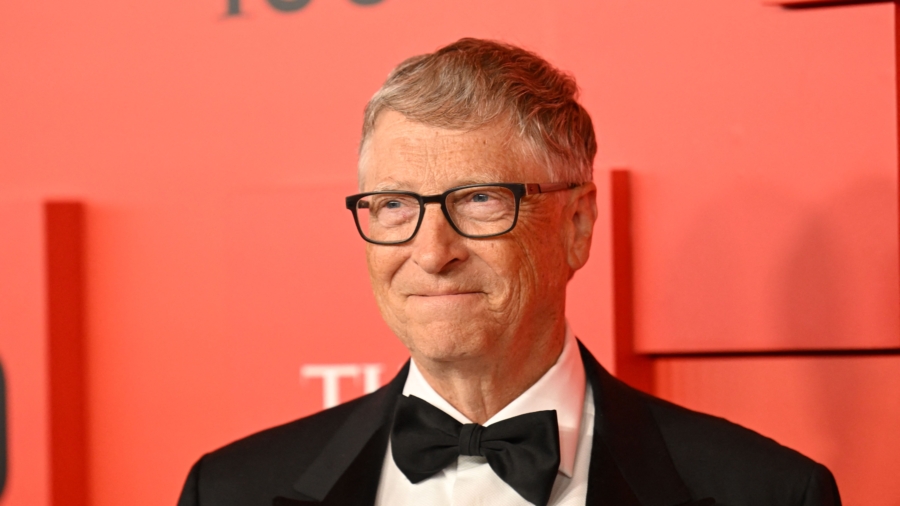Microsoft co-founder Bill Gates has issued his first public remarks in response to a proposal endorsed by Elon Musk and scores of artificial intelligence experts who demanded an urgent pause to the development of advanced forms of AI due to “profound risks to society and humanity.”
Gates told Reuters in an interview that calls to pause the development of AI won’t “solve the challenges” ahead, that a stoppage would be hard to implement globally, and that the rationale for doing so isn’t clear.
Last week, Musk added his signature to a letter issued by the nonprofit Future of Life Institute that warned that AI labs are currently locked in an “out-of-control race” to develop and put to use “ever more powerful digital minds” that cannot be fully understood, much less reliably controlled.
Musk and what is, at last count, over 10,000 signatories—including Apple co-founder Steve Wozniak and engineers from Meta and Google—called on all AI labs to “immediately pause” training of systems more powerful than Chat GPT-4 for at least six months.
The letter doesn’t call for a halt to AI development in general, just the most advanced systems in what the experts described as an act of “merely a stepping back from the dangerous race to ever-larger unpredictable black-box models with emergent capabilities.”
‘Catastrophic’ Impacts on Society
The experts warned that AI systems with human-competitive intelligence could pose “profound risks to society and humanity” and should be planned for and managed carefully to avoid potentially “catastrophic” impacts on the world and its people.
“Having succeeded in creating powerful AI systems, we can now enjoy an ‘AI summer’ in which we reap the rewards, engineer these systems for the clear benefit of all, and give society a chance to adapt,” the experts said.
“Society has hit pause on other technologies with potentially catastrophic effects on society. We can do so here. Let’s enjoy a long AI summer, not rush unprepared into a fall,” they argued.
They called for AI labs and independent experts to use the six-month moratorium to develop and implement a set of safety protocols for advanced AI design that would ensure that these systems are “safe beyond a reasonable doubt.”
Gates, in his interview with Reuters, threw cold water on the idea of a development pause and suggested a different course of action.
“I don’t think asking one particular group to pause solves the challenges,” Gates said. “Clearly, there [are] huge benefits to these things … what we need to do is identify the tricky areas.”
Besides recommending a more surgical approach to addressing the risks of AI by presumably identifying the biggest risks and working on ways to mitigate them, Gates criticized the letter’s vague criteria for enforcement.
“I don’t really understand who they’re saying could stop, and would every country in the world agree to stop, and why to stop,” Gates told Reuters. “But there are a lot of different opinions in this area.”
Microsoft has been at the forefront of AI development, investing billions in OpenAI, the creator of ChatGPT and its most advanced version GPT-4.
While Gates didn’t specify the “tricky areas” that he had in mind for closer risk scrutiny, he noted in a recent blog post that there is the “possibility that AIs will run out of control” and decide humans are a threat.
He also acknowledged the possibility that superintelligent or “strong” AIs could, in the future, set their goals that could run counter to the interests of humanity.
While Gates said that more work needs to be done on identifying the risks of “strong” AI, a leading researcher in the field, Eliezer Yudkowsky, said he believes that superintelligent systems would wipe out civilization.
“Many researchers steeped in these issues, including myself, expect that the most likely result of building a superhumanly smart AI, under anything remotely like the current circumstances, is that literally everyone on Earth will die,” Yudkowsky wrote in a Time magazine op-ed.
‘Shut It Down’
Gates has been bullish on AI technology, lauding its potential to help solve problems big and small, global and local, in a blog post published a day before the Musk-endorsed open letter calling for the AI development pause.
“The development of AI is as fundamental as the creation of the microprocessor, the personal computer, the Internet, and the mobile phone,” Gates wrote. “It will change the way people work, learn, travel, get health care, and communicate with each other. Entire industries will reorient around it.”
He said AI could potentially reduce “some of the world’s worst inequities,” like children in third-world countries dying of preventable causes like diarrhea or malaria.
“Climate change is another issue where I’m convinced AI can make the world more equitable,” wrote Gates, who has been a vocal advocate of fighting global warming, including once recommending that Americans “should move to 100 percent synthetic beef.”
While Gates and others have long touted that replacing real meat with plant-based or lab-grown varieties could mitigate climate change, organizations like the Global Food Justice Alliance (GFJA) have put forward counterpoints.
“Many of the proposed ecological food solutions, including ultra-processed meat substitutes, may appear to be better for the planet … but when examined closely, they are actually the result of extractive, chemical agriculture, which further degrades the health of our soil and waterways,” the group wrote on its website.
The group also cited a study showing that removing all livestock from the U.S. food system would only cut greenhouse gas emissions by 2.6 percent.
While Gates has expressed enthusiasm for the prospect that AI could advance progressive agendas, Yudkowsky warned that the dangers posed by the technology outweigh any benefits.
“We are not ready. We are not on track to be significantly readier in the foreseeable future. If we go ahead on this everyone will die, including children who did not choose this and did not do anything wrong,” he wrote.
“Shut it down.”
From The Epoch Times

